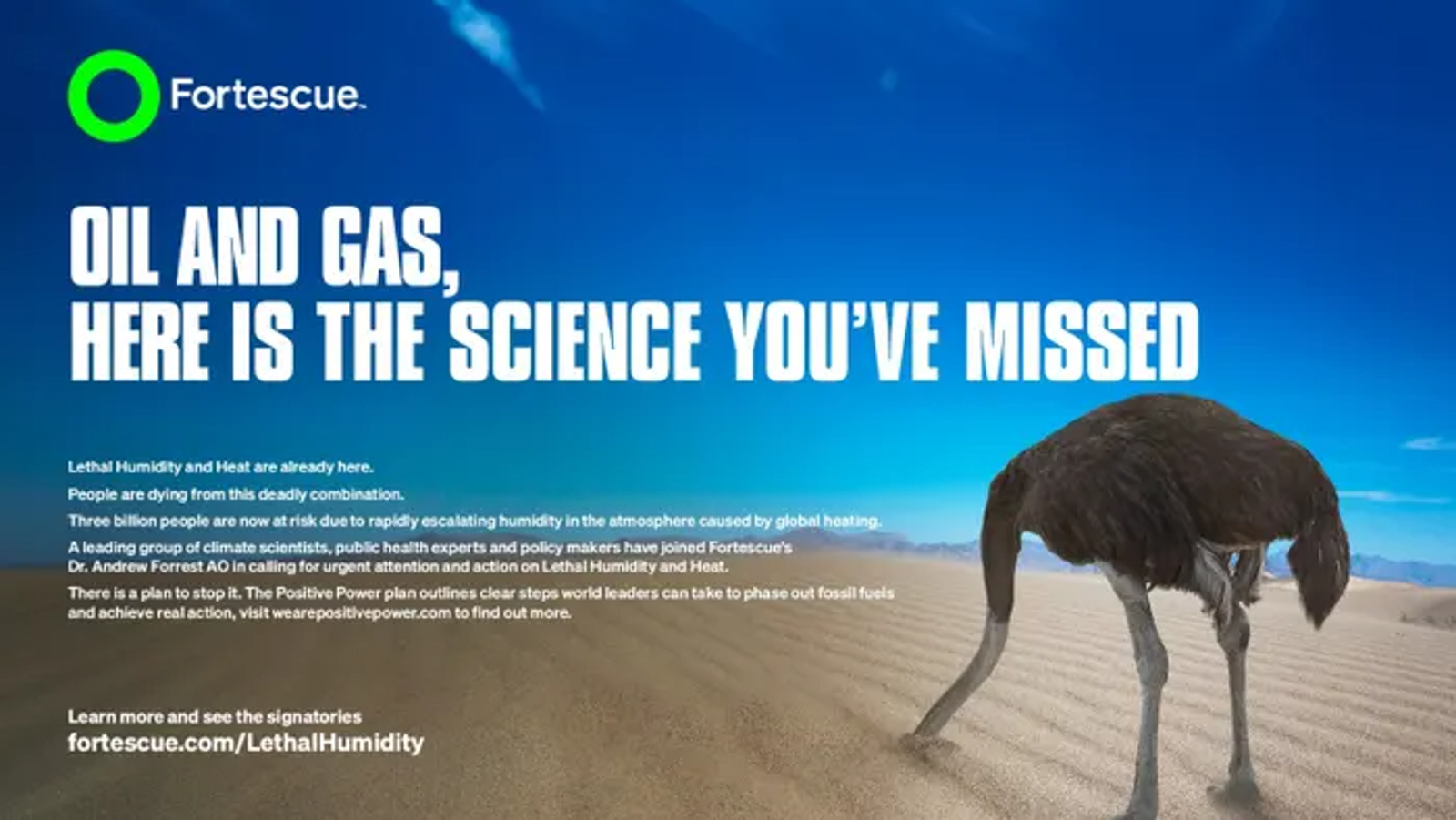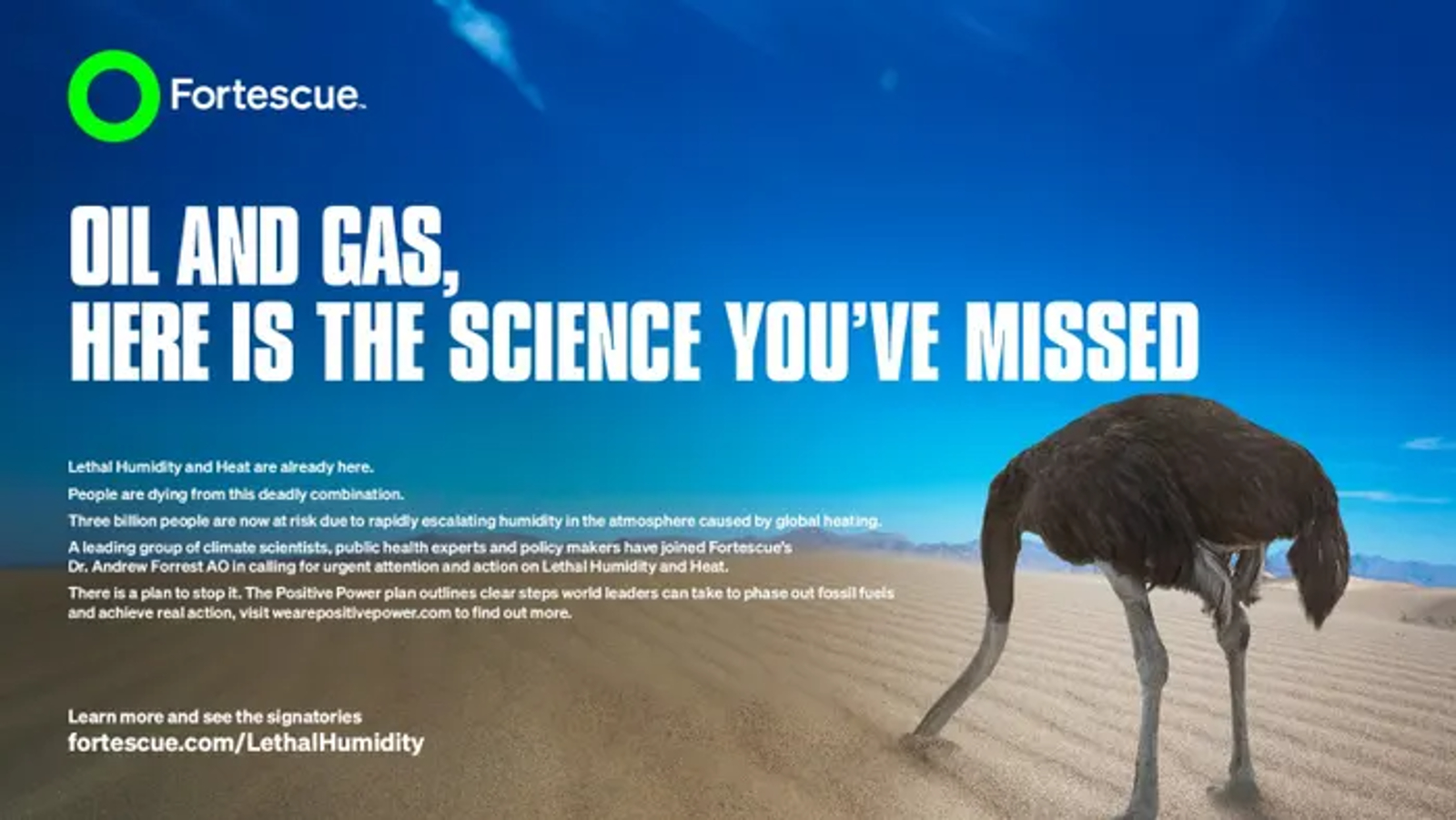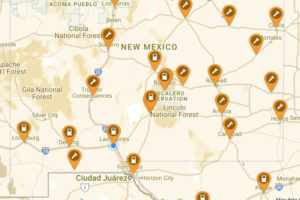COP28 is scheduled to wrap up in two days time, but this year’s conference is bogged down in semantics as the delegates from various nations push their own agendas. The central failing of this and all COP conferences is that the rules require any final statement to be approved unanimously by all conference members — an arrangement that gives enormous power to laggards who want to slow walk climate action to save their own skins. At COP26, a last minute demand to insert the word “phase-down” into the final communiqué led to president Akok Sharma reading it in tears.
Kuwait Wades In
This year, more than 100 nations are advocating for a statement that calls for a “phase out” of fossil fuels while the members of OPEC are being urged to resist such language with every fiber of their being. In a letter dated December 6, Haitham Al-Ghais, secretary general of the Organization of the Petroleum Exporting Countries, warned all members that there was rising pressure at the summit to target fossil fuels. He called those plans “politically motivated campaigns” against oil-rich nations that put “our people’s prosperity and future at risk.”
The New York Times reports the letter was sent to the 13 members of OPEC plus 10 additional nations that form what is known as OPEC Plus, which includes Russia. “It seems that the undue and disproportionate pressure against fossil fuels may reach a tipping point with irreversible consequences,” Mr. Al-Ghais wrote. He urged the petroleum producers to “reject any text or formula that targets energy, i.e. fossil fuels, rather than emissions.”
COP28 Draft Statement
A draft of the text of a final statement made public by COP28 officials on Friday included several options for final language, ranging from a call to phaseout fossil fuels “in line with the best available science,” to no mention at all of the future of oil, gas and coal. The possibilities also included a phaseout of “unabated” fossil fuels, a vague term that suggests that oil, gas and coal could continue to be used as long there was technology to capture and store the resulting carbon emissions. No such technology currently exists at the scale that scientists say is required, the New York Times noted.

2023 will go down as the hottest year in recorded history and yet the OPEC nations are adopting a head in the sand approach despite warnings from scientists and a growing list of climate disasters affecting every corner of the globe that is increasing pressure on the diplomats gathered in Dubai to take action.
The letter shows “that fossil fuel interests are starting to realize that the writing is on the wall for dirty energy,” said Mohamed Adow, of Power Shift Africa. “Climate change is killing poor people around the globe and these petro-states don’t want COP28 to phase out fossil fuels because it will hurt their short-term profits. It’s shameful.
“The reality is, if the world is going to save itself, it cannot be held back by a small band of countries that control the world’s oil supply. As well as saving us from climate change, a renewable-powered world is also one where energy is dispersed and democratised. Fossil fuels keep power in the hands of the few that happen to have them.”
On Saturday, a small group of climate activists from the organization 350.org staged a sit-in at the OPEC Pavilion at the summit. “This is a clear obstruction to the climate talks,” one of the protesters said. “Because we need a fast, fair, forever phaseout of fossil fuels now. ”
Cansın Leylim, associate director of global campaigns for 350.org said in a statement, “OPEC’s desperate resistance to a fossil fuel phaseout reveals their fear of a changing tide, evident in COP28 discussions. As 106 nations rally for a rapid fossil fuel decline, the draft text of the Global Stocktake offers hope with several options for a phaseout of fossil fuels. OPEC needs to get with the program or move out of the way of our just transition to a 100% renewable energy powered future. COP28 was supposed to be the most inclusive of climate talks, yet fossil fuel lobbyists have found shelter, and are trying to block progress. The spotlight is now on the COP28’s Presidency and if they will broker a deal for a just transition or instead align themselves with the oil industry.”
COP28 And Sultan Al Jaber
The answer to that question is still very much up in the air, as the president of the COO 28 summit is on record as saying if we stop burning fossil fuels, we will all need to go back to living in caves. He says he was misquoted but the video of his remarks says otherwise.
Sources tell the New York Times that during the first week of negotiations, Saudi Arabia moved to block several proposals regarding a phaseout of fossil fuels. They claim Saudi Arabia’s negotiators have simply refused to engage in any discussions about the future of fossil fuels.
Al Gore is pushing for changes to the U.N. rules so that future agreements would require approval from a supermajority of 75 percent of countries, rather than unanimous consent. Under the current rules, countries have to “beg for permission from the petro-states” to “protect the future of humanity,” Gore said at an event hosted by Bloomberg at COP28.
Senator Ed Markey, a Democrat from Massachusetts, is arriving at COP28 this weekend with a bipartisan group of House and Senate members. He told the New York Times he is worried about the heavy concentration of fossil fuel lobbyists at the summit. The Associated Press estimates there are at least 1,300 fossil fuel lobbyists are in attendance while a coalition of environmental groups examined registration records and put the number at more than 2,400. “Those lobbyists are determined to lock us into a fossil fueled path,” Mr. Markey said.
Marty Durbin, the senior vice president for policy at the United States Chamber of Commerce, maintained that oil executives were out in force at COP28 because they wanted to be “part of the solution.” He said the references to fossil fuels in the final agreement were not as important as the pledges many oil companies made this week to curb methane, a greenhouse gas, and reduce carbon dioxide emissions.
Abatement And Carbon Capture
There is some truth to that. Fossil fuel companies are all jiggly over the idea that they can burn coal, oil, and gas and simply capture the resulting carbon emissions and bury them underground, in the ocean, or perhaps hide them in the pantry with their cupcakes. Unfortunately, as anyone with an IQ higher than an armadillo knows, all those abatement procedures are an illusion. While they promise to capture up to 90 percent of emissions, in fact they sequester about 10 percent at most. To make matters worse, the cost of those paltry efforts is up to $300 per ton — far too high to be of any commercial value.
Where Do The Chinese Fit Into The Conversation?
At COP 26, India and China were the two countries that forced the switch from “phase-out” to “phase-down.” This year, India and China are at odds and China may be more amenable to taking a stronger position on fossil fuels. Just a few weeks ago, Chinese climate envoy Xie Zhenhua met with US climate envoy John Kerry. Afterwards, the pair announced a new agreement to curb methane emissions.
Now The Guardian reports that China may be willing to try to find a way to cut the Gordian Knot at the heart of this year’s climate negotiations. It says China would like to see nations agree to substitute renewable energy for fossil fuels. Xie Zhenhua, China’s climate envoy, would not be explicit on whether China supported or opposed a phase-out of fossil fuels, which more than 100 governments are pushing for at the COP28 UN summit. But he did indicate that he and his delegation were engaging positively to try to find a compromise on the contentious issue
Xie did gave an indication of what China sees as a possible compromise, by referring to a joint statement made with John Kerry, the US climate envoy, at that meeting in Sunnylands, California, in November. “We had this language which said that both China and the US will massively promote renewable energy deployment and use it to gradually and orderly substitute for oil, gas and coal power generation, so that we can reduce greenhouse gas emissions,” Xie said through an interpreter at a small press conference attended by The Guardian on Saturday evening.
Sometimes the best way past an obstacle is to go around it. Perhaps China can get others to endorse such an end run. If it does, there may be a glimmer of hope for the world to avoid a full scale meltdown, both figuratively and literally.
Have a tip for CleanTechnica? Want to advertise? Want to suggest a guest for our CleanTech Talk podcast? Contact us here.
Our Latest EVObsession Video
[embedded content]I don't like paywalls. You don't like paywalls. Who likes paywalls? Here at CleanTechnica, we implemented a limited paywall for a while, but it always felt wrong — and it was always tough to decide what we should put behind there. In theory, your most exclusive and best content goes behind a paywall. But then fewer people read it!! So, we've decided to completely nix paywalls here at CleanTechnica. But...
Thank you!
Advertisement
CleanTechnica uses affiliate links. See our policy here.
- SEO Powered Content & PR Distribution. Get Amplified Today.
- PlatoData.Network Vertical Generative Ai. Empower Yourself. Access Here.
- PlatoAiStream. Web3 Intelligence. Knowledge Amplified. Access Here.
- PlatoESG. Carbon, CleanTech, Energy, Environment, Solar, Waste Management. Access Here.
- PlatoHealth. Biotech and Clinical Trials Intelligence. Access Here.
- Source: https://cleantechnica.com/2023/12/10/cop-28-slug-fest-over-language-heats-up/
- :is
- :not
- :where
- $UP
- 1
- 10
- 100
- 13
- 15%
- 26
- 28
- 300
- 350
- 36
- 400
- 75
- 90
- a
- About
- Action
- activists
- Additional
- Adopting
- Advertise
- advocating
- affecting
- Affiliate
- afterwards
- against
- ago
- Agreement
- agreements
- AIR
- AL
- align
- All
- also
- always
- an
- and
- announced
- answer
- any
- anyone
- approach
- approval
- approved
- ARE
- around
- arrangement
- arriving
- AS
- Associate
- associated
- At
- attendance
- available
- avoid
- back
- BAND
- BE
- because
- behind
- being
- BEST
- bipartisan
- Bit
- Block
- Bloomberg
- bogged
- both
- broker
- burn
- burning
- but
- by
- california
- call
- called
- Calls
- Campaigns
- CAN
- Can Get
- cannot
- capture
- carbon
- carbon dioxide
- carbon emissions
- central
- Chamber
- change
- Changes
- changing
- China
- Chinas
- chinese
- chip
- claim
- cleantech
- Cleantech Talk
- clear
- Climate
- climate action
- Climate change
- Coal
- coalition
- Commerce
- commercial
- Companies
- completely
- compromise
- concentration
- Conference
- conferences
- consent
- Consequences
- content
- continue
- control
- Conversation
- coo
- cop28
- Corner
- Cost
- could
- countries
- Current
- Currently
- Cut
- dated
- Days
- deal
- December
- decide
- decided
- Decline
- delegates
- delegation
- Demand
- Democrat
- deployment
- Despite
- determined
- DID
- diplomats
- Director
- disasters
- discussions
- dispersed
- disproportionate
- do
- does
- don
- Dont
- down
- draft
- Dubai
- during
- e
- ed
- efforts
- embedded
- Emissions
- end
- endorse
- energy
- engage
- engaging
- enormous
- environmental
- estimates
- evening
- Event
- Every
- evident
- Exclusive
- executives
- exists
- fact
- failing
- fair
- far
- FAST
- fear
- felt
- fest
- few
- fewer
- final
- Find
- First
- fit
- For
- Force
- forever
- form
- formula
- fossil
- Fossil fuel
- fossil fuels
- found
- Friday
- from
- Fuel
- fueled
- fuels
- full
- future
- GAS
- gathered
- gave
- General
- generation
- get
- gives
- glimmer
- Global
- globe
- Go
- Goes
- going
- Governments
- gradually
- greenhouse gas
- Greenhouse gas emissions
- Group
- Group’s
- Growing
- Guest
- had
- Hands
- happen
- Have
- he
- head
- Heart
- heavy
- Held
- help
- here
- Hide
- High
- higher
- his
- history
- hope
- hosted
- hottest
- House
- HTML
- HTTPS
- Humanity
- Hurt
- i
- idea
- if
- Illusion
- implemented
- important
- in
- included
- includes
- Inclusive
- increasing
- india
- indicate
- indication
- industry
- instead
- interests
- into
- IT
- itself
- John
- joint
- jpg
- just
- Keep
- killing
- known
- knows
- laggards
- language
- Last
- latest
- least
- Led
- letter
- like
- likes
- Limited
- Line
- links
- List
- living
- lobbyists
- Long
- made
- make
- many
- massachusetts
- massively
- Matters
- max-width
- May..
- Media
- meeting
- Meltdown
- Members
- mention
- met
- methane
- minute
- Mohamed
- more
- most
- motivated
- move
- moved
- mr
- much
- Nations
- Need
- needs
- negotiations
- New
- news
- no
- noted
- November
- now
- number
- obstacle
- ocean
- Odds
- of
- Offers
- officials
- Oil
- oil-rich
- oil-rich nations
- on
- ONE
- opec
- OPEC Nations
- opposed
- Options
- or
- organization
- Other
- Others
- otherwise
- our
- out
- over
- own
- pair
- past
- path
- People
- people’s
- per
- percent
- perhaps
- permission
- Petroleum
- phase
- plans
- plato
- Plato Data Intelligence
- PlatoData
- player
- plus
- podcast
- Point
- policy
- poor
- position
- positively
- possibilities
- possible
- power
- powered
- presidency
- president
- press
- pressure
- procedures
- Producers
- profits
- Program
- Progress
- promise
- promote
- Proposals
- prosperity
- public
- publish
- Push
- Pushing
- put
- question
- rally
- ranging
- rapid
- rather
- reach
- Read
- Reader
- Reading
- Reality
- realize
- record
- recorded
- records
- reduce
- references
- regarding
- Registration
- Renewable
- renewable energy
- Reports
- require
- required
- Resistance
- resulting
- Reveals
- rising
- Risk
- rules
- Run
- Russia
- Said
- SAND
- saturday
- Saudi
- Saudi Arabia
- Save
- saving
- say
- saying
- says
- Scale
- scheduled
- Science
- scientists
- secretary
- see
- seems
- sees
- semantics
- Senate
- senior
- sent
- several
- Sharma
- Shelter
- shift
- short-term
- should
- Shows
- simply
- slow
- small
- So
- solution
- some
- Spotlight
- Starting
- Statement
- States
- Still
- stocktake
- Stop
- store
- Stories
- stronger
- such
- suggest
- Suggests
- sultan
- Summit
- supermajority
- supply
- support
- Supported
- supposed
- Switch
- T
- Take
- taking
- Talk
- Talks
- Target
- targets
- team
- Technology
- tell
- term
- text
- than
- that
- The
- The Future
- the world
- their
- Them
- themselves
- then
- theory
- There.
- These
- they
- this
- this week
- this year
- those
- Through
- Tide
- time
- tip
- Tipping
- Tipping point
- to
- told
- Ton
- too
- tough
- transition
- truth
- try
- trying
- two
- UN
- unanimously
- under
- unfortunately
- United
- United States
- Updates
- us
- use
- used
- uses
- value
- various
- Ve
- very
- vice
- Vice President
- Video
- walk
- Wall
- want
- wanted
- warned
- was
- Way..
- we
- week
- weekend
- Weeks
- WELL
- were
- What
- What is
- whether
- which
- while
- WHO
- will
- willing
- with
- Word
- world
- world’s
- worried
- worse
- would
- wrap
- write
- writing
- Wrong
- wrote
- year
- yet
- york
- you
- Your
- youtube
- zephyrnet







